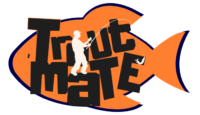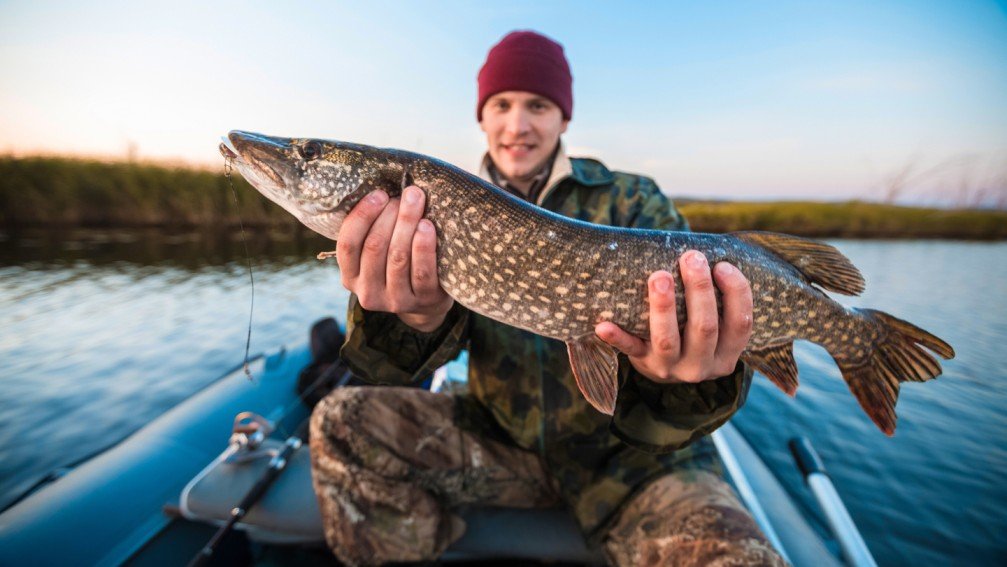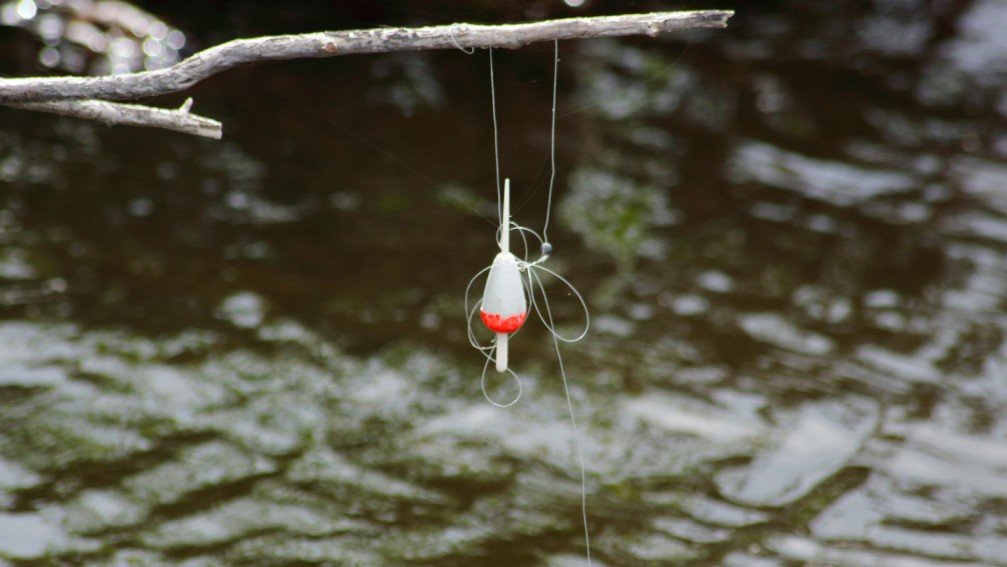Pros include a deep connection with nature and the joy of teaching others. Cons involve irregular income and physical demands.
Becoming a fishing guide offers a unique and fulfilling career path. Immersed in nature, you get to share your passion for fishing with clients. This job allows you to work outdoors and experience the thrill of the catch daily. However, this career also comes with challenges.
Irregular income and the physical demands of the job can be significant drawbacks. Understanding the pros and cons is essential before diving into this profession. Balancing your passion for fishing with the practical aspects of the job is crucial for long-term success. A fishing guide’s life is rewarding but requires dedication and resilience.
Daily Life Of A Fishing Guide
Becoming a fishing guide can be exciting and rewarding. Their daily routines are filled with adventure, nature, and sometimes challenges. Let’s explore what it’s like to live as a fishing guide.
Typical Day
A typical day for a fishing guide starts early in the morning. They prepare the boat, check the equipment, and ensure all safety measures. Once clients arrive, they head to the best fishing spots.
During the trip, the guide teaches techniques and helps with baiting hooks. They share knowledge about fish species and local ecosystems. After a successful day, they clean and store the gear, ready for the next adventure.
Evenings often involve planning for the next day, answering client queries, and updating social media with the day’s catches.
Seasonal Changes
Fishing guides experience seasonal changes that affect their daily routines. In spring and summer, they may work longer hours due to high demand. The warmer weather brings more tourists eager to fish.
During fall, the focus shifts to different fish species. Guides need to adapt their techniques and locations. Winter can be quieter but offers unique opportunities like ice fishing in colder regions.
Seasonal changes also impact the types of gear and clothing needed. Guides must be prepared for varying weather conditions and water temperatures.
Pros Of Being A Fishing Guide
Being a fishing guide offers many benefits. You enjoy the outdoors, stay fit, and build strong relationships. Here are some key advantages of this profession:
Connection To Nature
Fishing guides spend most of their time in nature. They experience beautiful sunrises, tranquil waters, and diverse wildlife. This connection provides peace and reduces stress. Many guides find joy in sharing this beauty with clients.
Physical Activity
Guiding fishing trips involves a lot of physical activity. You might row boats, set up gear, or hike to remote spots. This constant movement keeps you fit and healthy. Unlike desk jobs, this work keeps you active and engaged.
Building Client Relationships
Fishing guides meet new people every day. They share their love for fishing and teach new skills. This helps build strong, lasting relationships. Many clients become repeat customers and even friends. Sharing the excitement of a big catch creates memorable moments.
In summary, being a fishing guide offers unique rewards. You connect with nature, stay physically active, and build meaningful relationships. It’s a fulfilling and enriching career choice.
Cons Of Being A Fishing Guide
Being a fishing guide has its share of challenges. While the job can be rewarding, there are several downsides to consider. Below, we explore some of the key cons of being a fishing guide.
Weather Challenges
Weather plays a crucial role in fishing. Unpredictable weather can ruin a planned trip. Rain, storms, and extreme heat make fishing difficult. Clients may cancel due to bad weather, causing financial loss. Safety is a concern during severe weather conditions. You need to be prepared for all types of weather.
Unpredictable Income
Income as a fishing guide can be inconsistent. Seasonal changes affect the number of clients. During off-seasons, work might be scarce. Economic downturns can reduce people’s spending on leisure activities. You must budget wisely to handle periods with no income.
Physical Demands
The job of a fishing guide is physically demanding. Long hours are spent on the water. Carrying heavy equipment can strain your body. Being on your feet all day can lead to fatigue. Injuries are possible due to the nature of the job. Physical fitness is essential to keep up with the demands.
Financial Aspects
Being a fishing guide has its financial ups and downs. Understanding the financial aspects is crucial for making an informed decision. This section will dive into the earnings potential and expenses to consider for a fishing guide.
Earnings Potential
Fishing guides can make a good income based on their location and skill level. Here are some key points:
- Hourly Rate: Many guides charge between $50 and $100 per hour.
- Seasonal Work: Earnings can fluctuate based on the fishing season.
- Tips: Clients often tip, adding to your overall earnings.
A successful guide can earn between $20,000 and $60,000 annually. Experienced guides in popular locations can earn even more.
Expenses To Consider
Running a fishing guide business involves several expenses. It’s important to be aware of these costs:
| Expense | Estimated Cost |
| Boat Maintenance | $1,000 – $5,000 annually |
| Fuel Costs | $500 – $2,000 monthly |
| Fishing Gear | $500 – $2,000 annually |
| Licensing Fees | $100 – $500 annually |
| Marketing | $300 – $1,500 annually |
These expenses can add up quickly. Proper planning and budgeting are essential for success.
Necessary Skills
Being a fishing guide is rewarding but requires specific skills. Mastering these skills ensures success and client satisfaction. Below, we explore the necessary skills for a fishing guide.
Fishing Expertise
A fishing guide must possess extensive fishing knowledge. This includes understanding fish behavior, using various fishing techniques, and knowing local waterways. Guides should be familiar with:
- Different types of fish
- Seasonal fish patterns
- Effective bait and tackle
Fishing expertise builds client trust and ensures a successful trip.
Customer Service
Excellent customer service skills are crucial. Guides interact with clients of all skill levels. They must be patient, friendly, and helpful. Key aspects include:
- Clear communication
- Positive attitude
- Problem-solving abilities
Providing a memorable experience encourages repeat business and referrals.
Safety Knowledge
Safety is a top priority for fishing guides. They must understand and implement safety protocols. Essential safety knowledge includes:
- First aid training
- Boat operation
- Weather awareness
Guides must ensure the safety of clients and themselves at all times.
Licensing And Certification
Becoming a fishing guide means getting the right licenses and certifications. These steps ensure you follow the rules and keep everyone safe. This part of the job has both good and bad points.
Required Licenses
Fishing guides need specific licenses to work legally. These licenses prove you know the rules and can handle clients safely. Here are some common licenses:
- State Fishing License: Each state has its own rules.
- Captain’s License: For guiding on large boats.
- Insurance: Protects you and your clients.
Getting these licenses costs money and takes time. But they are necessary for a professional fishing guide.
Certification Programs
Certification programs offer extra training for fishing guides. These programs teach you new skills and improve your knowledge. Popular certification programs include:
- First Aid and CPR: Keeps clients safe in emergencies.
- Wildlife Conservation: Teaches you to protect fish and their habitats.
- Fishing Techniques: Learn advanced fishing methods.
Certifications can make you a better guide and attract more clients. But they also require time and money to complete.
Work-life Balance
Being a fishing guide can be exciting and rewarding. But it also comes with its own set of challenges. One of the most important aspects to consider is work-life balance. This balance can significantly impact your well-being and overall happiness.
Time Management
Fishing guides often work long hours. This includes early mornings and late evenings. Managing your time effectively is crucial. Here are some tips for better time management:
- Plan your trips ahead of time
- Set boundaries for work and personal life
- Use a calendar to schedule your activities
Effective time management can help you balance your work and personal life. It allows you to be more productive and less stressed.
Family Considerations
Being away from home frequently can impact family life. Fishing guides often miss out on family events. Here are some considerations for maintaining family harmony:
| Challenges | Solutions |
| Missing family events | Plan family time on off days |
| Limited time with kids | Involve kids in fishing activities |
| Strain on relationships | Communicate openly with your partner |
Balancing work and family life requires effort. But it is achievable with the right strategies. Open communication and planning can help maintain harmony at home.
Career Growth Opportunities
Being a fishing guide offers various career growth opportunities. Whether you’re passionate about freshwater or saltwater fishing, there are numerous paths to advance your career. Let’s explore these opportunities through advancement paths and specialization areas.
Advancement Paths
Fishing guides can advance their careers in several ways. Here are some common advancement paths:
- Starting as an Assistant Guide: Many begin as assistants, learning from experienced guides.
- Becoming a Lead Guide: With experience, you can lead your own fishing trips.
- Establishing a Guiding Business: Some guides start their own businesses, offering customized trips.
- Working for Resorts or Lodges: Experienced guides often get hired by top resorts.
Specialization Areas
Fishing guides can specialize in different areas to enhance their careers. Specialization can lead to higher earnings and more job satisfaction. Here are some specialization areas:
- Fly Fishing: Guides who specialize in fly fishing are in high demand.
- Deep-Sea Fishing: This requires knowledge of ocean fishing techniques and gear.
- Eco-Tourism: Combining fishing with eco-friendly practices appeals to many clients.
- Ice Fishing: Specialized guides offer unique experiences in colder climates.
Being a fishing guide offers both rewarding experiences and significant challenges. Weighing the pros and cons is essential. Personal passion for fishing can make the challenges worthwhile. Ultimately, your enjoyment and dedication will determine your success in this career. Consider your lifestyle and goals before diving into this adventurous profession.
FAQs:
What Are The Benefits Of Fishing Guides?
Fishing guides enhance your experience by offering expert knowledge, increasing catch rates, and ensuring safety. They provide equipment, local insights, and teach techniques, making trips more enjoyable and successful.
Are Fishing Guides Worth It?
Yes, fishing guides are worth it. They offer expert knowledge, increase your catch chances, and enhance the overall experience.
Do Fishing Guides Make Money?
Yes, fishing guides make money. Their income varies based on location, experience, and clientele. Successful guides can earn a good living.
What Makes A Good Fishing Guide?
A good fishing guide has local expertise, strong communication skills, and patience. They prioritize safety and customer satisfaction.



